Disposal of waste has been the biggest challenge for all Urban Local Bodies (ULBs) including the fast growing Mysuru city. With generation of around 500 tonnes of waste daily, disposing it off has become a big problem due to resistance from local public against having solid waste processing units in their areas.
As new Layouts are added, it is becoming an additional burden on Mysuru City Corporation (MCC) to manage it with limited resources. After much delay, the State Environment Impact Assessment Authority-Karnataka gave its nod for the construction of the long-pending solid waste processing facility at Rayanakere and Kesare. In a brief chat with Star of Mysore, MCC Commissioner Gurudatta Hegde shared his plans to address the problem of solid waste management. Excerpts. —Ed
By Shyam Sundar Vattam
Star of Mysore: Management of Municipal waste has posed a big challenge. What plans MCC has to address this issue?
Gurudatta Hegde: This problem is bound to happen as and when the city grows. Mysuru is no longer a ‘Pensioner’s Paradise’ or ‘Big Village’ as described by a few some years ago. This city has made a niche for itself in the entire country as ‘cleanest city’ of India. Besides, Mysuru is one among a few cities which is categorised as fast growing Tier-II city. With more and more people coming here to settle or on work, waste is naturally generated. Eight agencies were fixed by the Corporation for waste management. However, of them six agencies failed to work to MCC’s expectations since they lacked experience. It has just become defunct. So, with the permission of MCC Standing Committee on Health, it was decided to change six of the total agencies. Work orders will be issued to new agencies within a month.
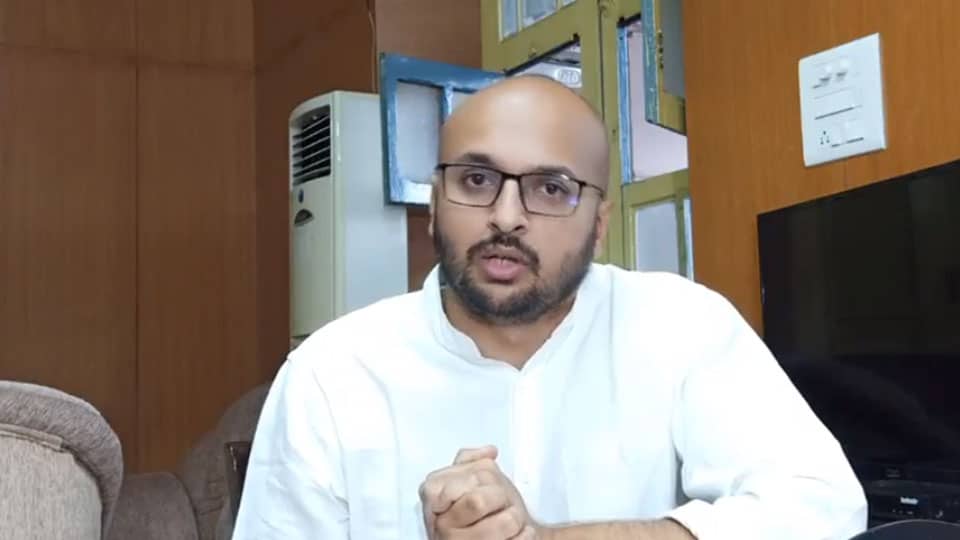
Star of Mysore: How is the door-to-door collection of waste from the Wards going on. Is it satisfactory?
Gurudatta Hegde: There is no problem in regard to collection of waste from door-to-door in almost all Wards. But the segregation of waste has to improve. In this regard, Pourakarmikas are being trained. There is a dire need to reduce the use of plastic as it is still used widely by people despite banning non-biodegradable plastic. Additional garbage collection vehicles are deployed and more number of Pourakarmikas are posted in every Ward to pick up Municipal waste. There is always scope for improvement to make Mysuru to achieve success in management of Municipal waste.

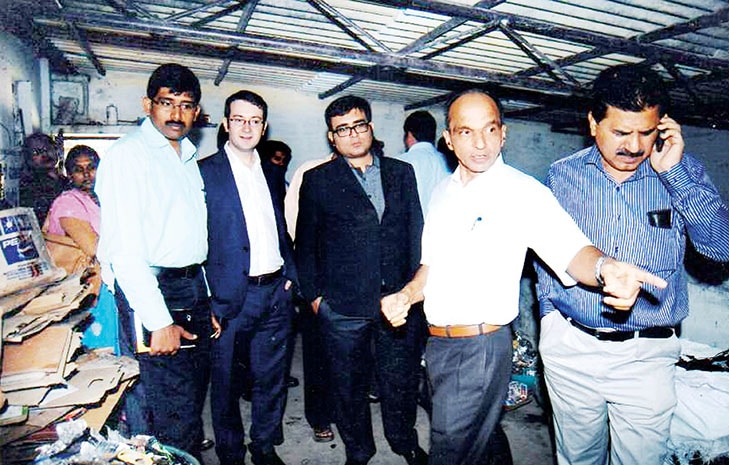
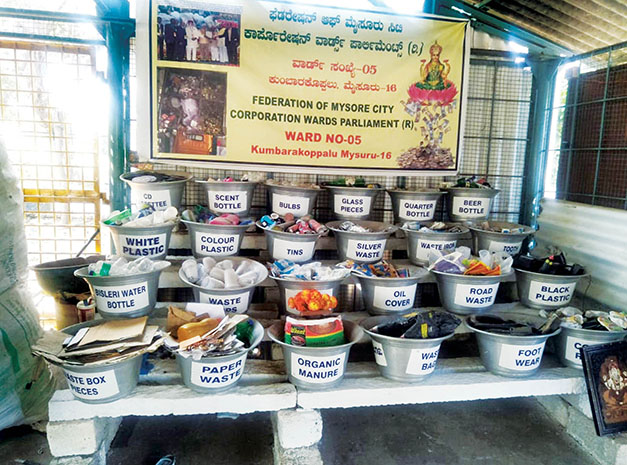
Star of Mysore: What happened to two solid waste processing units at Rayanakere and Kesare which got clearance by the State Environment Impact Assessment Authority-Karnataka for the construction of Municipal solid waste processing facility there?
Gurudatta Hegde: Problems cropped up from the day of conceiving this project. A few residents opposed it on the ground that it emanates foul smell which will make their life miserable. After sustained efforts, these two plants got clearance from the authority concerned over two years ago. Now, both the facilities were in the final stages of completion. Once these plants become ready, around 300 tonnes of solid waste can be handled at Kesare and Rayanakere Units and the rest will be transported to Vidyaranyapuram Sewage Treatment Plant. Our endeavour is to stop dumping of solid waste at Vidyaranyapuram Plant and already working in this direction. The agency, which is managing the Vidyaranyapuram Plant, has sought a few months time to reduce the tepid smell as much as possible much to the delight of local residents.
Star of Mysore: There is lot of appreciation about Zero Waste Management Centre in Kumbarakoppal. What is so special about it?
Gurudatta Hegde: In fact, one of the best managed Zero Waste Management Plants has been the Kumbarakoppal Plant. About 75 per cent of segregation is done at initial stage and remaining waste is required to segregate at the segregation plant. Segregation is done in two stages — first stage segregation of plastic, glass, soft plastic and bio-degradable waste is done while second stage includes segregation in sub-parts of each material for marketing, that is, plastic with different colours and thickness. Segregation of all waste materials is done manually. From segregation process, dry waste is stored in bins and packed for monthly storage whereas biodegradable waste is sent to composting bins. Segregated biodegradable waste is directly dumped in composting bins. Generally, two months are required to fill one composting bin completely. After two months, compost is sold to farmers as fertilizer. Average price of one bin compost is around Rs. 2,500. Officers from other Corporations have visited this Plant to study its functioning and wanted to have similar ones in their cities.

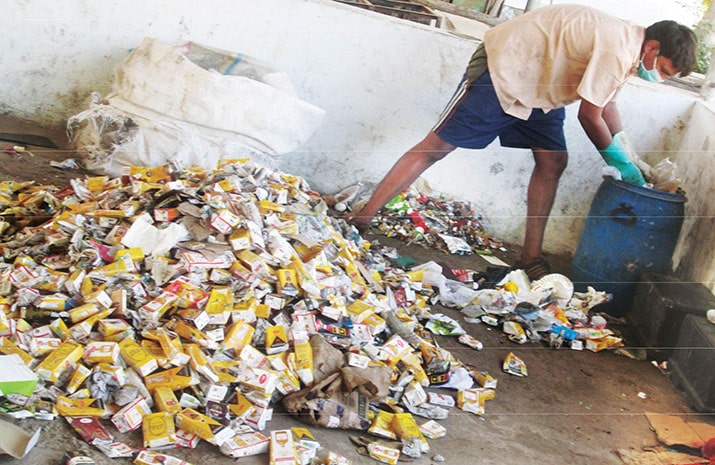
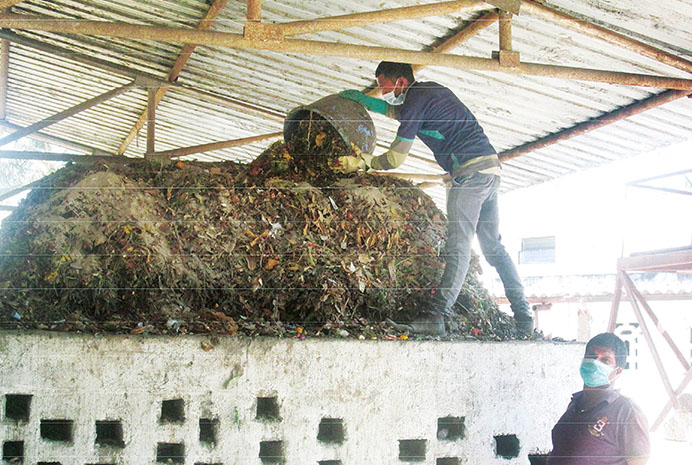
Star of Mysore: What happened to the proposal of setting up Biogas Plants?
Gurudatta Hegde: The MCC is in touch with Central Institute of Plastics Engineering and Technology (CIPET), Mysuru to share knowledge regarding setting up of Biogas Plants with latest technology. In fact, the Corporators and officials of MCC have visited Nagpur and Coimbatore to study solid waste management plants. In MCC, they were floating three different tenders including transportation of solid waste which was hampering the functioning of plants. Now, the MCC has plans to float only one tender. We have approached ITC to help in setting up of Biogas Plants as part of Corporate Social Responsibility (CSR) activity.
Star of Mysore: Why can’t MCC take help from solid waste management experts in Bengaluru to address certain issues here?
Gurudatta Hegde: We are happy that Nalini Shekar, Co-founder and Executive Director of Hasiru Dala, Bengaluru and other agencies have come forward to share know-how on solid waste management. Hasiru Dala is helping in training waste pickers besides sharing knowledge on the concept of zero waste management, recycling and composting. RBI Note Printing Press has been requested to provide machinery as part of CSR for total management of solid waste.



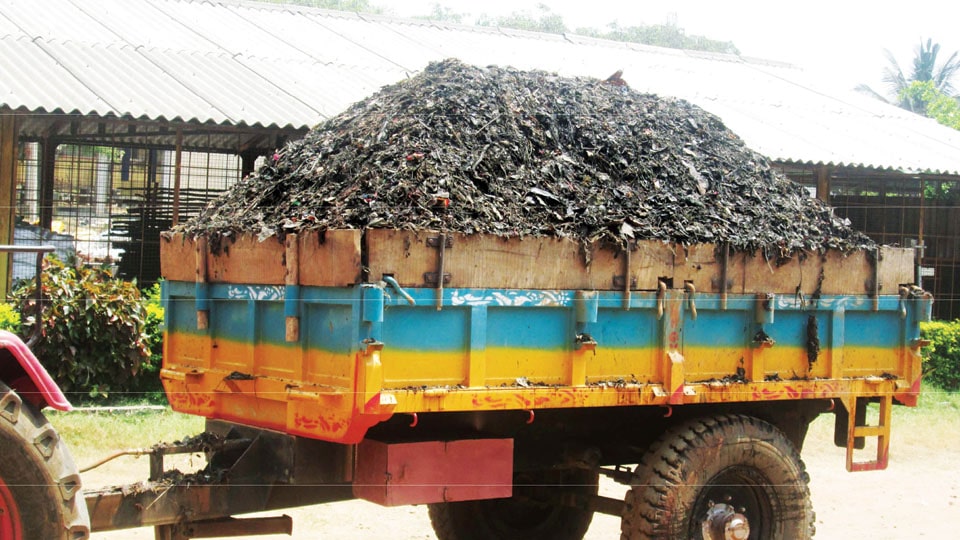
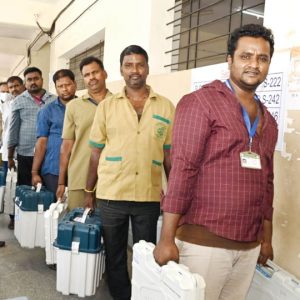
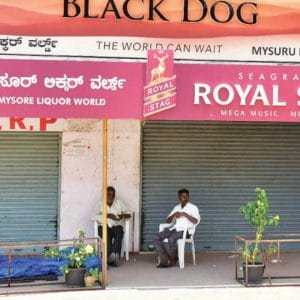
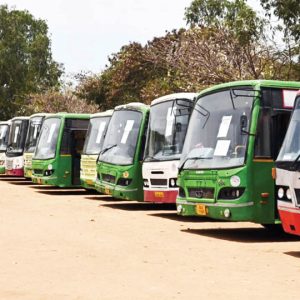
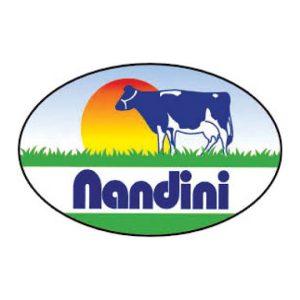
Recent Comments